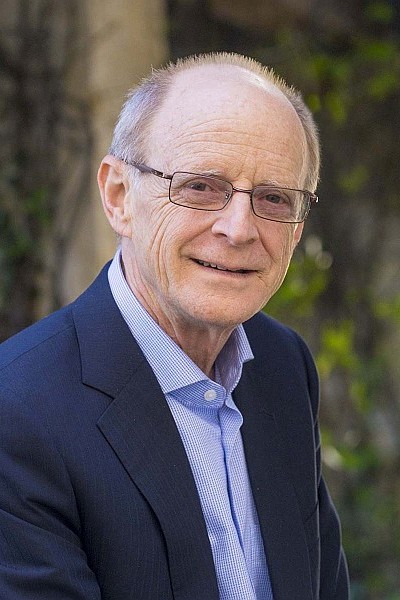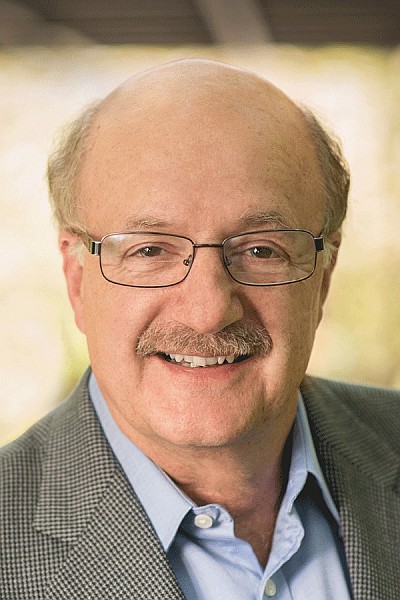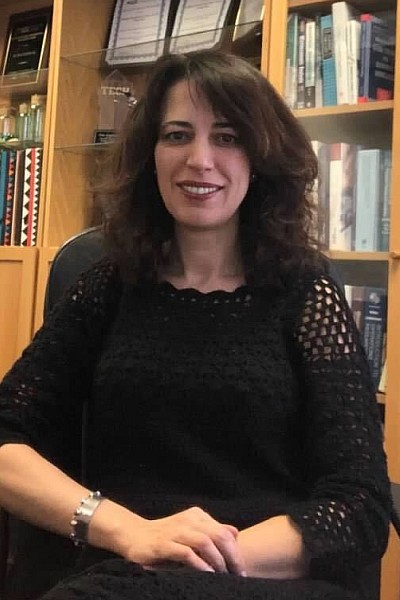Keynote Speakers
- Emotion and Expression
Rana El Kaliouby and James Pennebaker - Back to the Future for Dialogue Research
Phil Cohen - Pandemic Response
Natasha Martin, John Rogers, and Pinar Keskinocak
Rana el Kaliouby

|
Affectiva, USA Panel on Emotion and Expression A pioneer in artificial emotional intelligence (Emotion AI), Rana el Kaliouby, PhD, is co-founder and CEO of MIT spinoff and category-defining company Affectiva, and is the author of Girl Decoded. Rana led the innovation of the company’s award-winning technology, which uses deep learning and massive amounts of data to analyze complex and nuanced emotions and cognitive states from face and voice. She has raised over $50 million in venture and strategic funding for Affectiva, where the company’s technology is used by automotive OEMs and tier 1 suppliers to improve road safety and the in-cabin experience, in addition to 25% of the Fortune Global 500 companies to test content, and in other industries like HR video recruitment and mental health. Rana is now paving the way for Human Perception AI: software that can detect all things human, from nuanced human emotions and complex cognitive states, to behaviors, activities and the objects people use. Prior to founding Affectiva, Rana was a research scientist at MIT Media Lab where she spearheaded the applications of emotion recognition technology in a variety of fields, including mental health and autism research. Rana holds a BSc and MSc in Computer Science from the American University in Cairo, a PhD from the Computer Laboratory at the University of Cambridge and a Post Doctorate at MIT. Rana is one of few women leading a disruptive AI company. A Muslim-American and passionate advocate, she frequently speaks in press and on stage about innovation, women in technology, ethics in AI and leadership. Forbes recently included Rana in their list of America’s Top 50 Women in Tech, Fortune Magazine included her in their 2018 40 under 40 and she was named one of the three Global Business pioneers by Bloomberg in 2017. Rana is a trustee at the American University in Cairo and a senior advisor to the Technology and Public Purpose project at the Harvard Kennedy School. Rana is also a member of the World Economic Forum’s Young Global Leaders and a member of the Partnership on AI, alongside founding companies Amazon, Apple, Google/DeepMind and others. |
James W. Pennebaker

|
University of Texas at Austin, USA Panel on Emotion and Expression James W. Pennebaker is the Regents Centennial Professor of Liberal Arts and Professor of Psychology. He is an internationally recognized social psychologist who's endlessly curious about human nature. He and his students are exploring natural language use, group dynamics, and personality in both laboratory and real world settings. His earlier work found that keeping secrets can make people sick. This work led to his discovery that people could improve their physical and mental health by writing about their deepest secrets, which is now widely known as expressive writing. He found that physical health and work performance can improve by simple writing and/or talking exercises. Most recently, he's become intrigued by how people reveal themselves in their everyday spoken and written language. His cross-disciplinary research is related to linguistics, clinical and cognitive psychology, communications, medicine, and computer science. Author or editor of 12 books and over 300 articles, Pennebaker has received numerous research and teaching awards and honors. |
Philip Cohen

|
Monash University, Australia Back to the Future for Dialogue Research Dr. Philip Cohen is an expert in the fields of human-computer dialogue, multimodal interaction, and multiagent systems. He is a Fellow of the Association for Computing Machinery, Fellow of the Association for the Advancement of Artificial Intelligence, and a past President of the Association for Computational Linguistics. He also is the recipient of the 2017 Sustained Accomplishment Award from the International Conference on Multimodal Interaction. He currently is an Adjunct Professor of Data Science and Artificial Intelligence, in the Faculty of Information Technology, Monash University. Cohen has held positions as Chief Scientist, AI and Sr. Vice President for Advanced Technology at VoiceBox Technologies, Founder of Adapx Inc., Professor at the Oregon Graduate Institute/Oregon Health and Sciences University, Program Manager at the Artificial Intelligence Center of SRI International, and research scientist at Fairchild Laboratory for Artificial Intelligence, and Bolt Bernanek and Newman. His accomplishments include co-developing foundational theories of intention, collaboration, and speech acts, co-developing and deploying multimodal systems, and conceiving and leading the project at SRI International that developed the Open Agent Architecture, which eventually became SiriTM. Cohen has published more than 150 refereed papers, with more than 18,000 citations, and received 7 patents. His paper with Prof. Hector Levesque “Intention is Choice with Commitment” was awarded the inaugural (2006) Influential Paper Award from the International Foundation for Autonomous Agents and Multi-Agent Systems. |
Natasha Martin

|
UC San Diego, USA Panel on Pandemic Response Dr. Natasha Martin is an infectious disease economic modeler who develops dynamic transmission models to evaluate the impact and cost-effectiveness of public health interventions. She is currently an Associate Professor in the Division of Infectious Diseases and Global Public Health at the University of California San Diego and holds an honorary senior lecturer position at the University of Bristol, UK. She is also the co-director of the Biostatistics and Modeling Core of the University of California San Diego Center for AIDS Research (UCSD CFAR). Dr. Martin has worked for 18 years developing mathematical models of disease progression and transmission in both communicable and non-communicable diseases. For the past ten years, her primary research has focused on modeling hepatitis C virus (HCV) and HIV transmission and prevention among underserved populations such as people who inject drugs (PWID), men who have sex with men, and female sex workers. Her work has informed multiple global, national, and local guidelines, and was selected by The Economist Magazine as a "HCV Changemaker". Recently, Dr. Martin has been involved with the COVID response as co-lead of the UCSD Return to Learn program. This program aims to use a data-driven framework to inform how to improve university campus safety through risk mitigation, viral monitoring, and public health efforts. She has developed county-level forecasting models for California, and individual-based network models to understand the impact of campus configuration and testing strategies on SARS-CoV-2 transmission. |
John A. Rogers

|
Northwestern University, USA Panel on Pandemic Response Professor John A. Rogers obtained BA and BS degrees in chemistry and in physics from the University of Texas, Austin, in 1989. From MIT, he received SM degrees in physics and in chemistry in 1992 and the PhD degree in physical chemistry in 1995. From 1995 to 1997, Rogers was a Junior Fellow in the Harvard University Society of Fellows. He joined Bell Laboratories as a Member of Technical Staff in the Condensed Matter Physics Research Department in 1997, and served as Director of this department from the end of 2000 to 2002. He then spent thirteen years on the faculty at University of Illinois, most recently as the Swanlund Chair Professor and Director of the Seitz Materials Research Laboratory. In the Fall of 2016, Dr. Rogers joined Northwestern University as the Louis Simpson and Kimberly Querrey Professor of Materials Science and Engineering, Biomedical Engineering and Medicine, with affiliate appointments in Mechanical Engineering, Electrical and Computer Engineering and Chemistry, where he is also Director of the recently endowed Querrey Simpson Institute for Bioelectronics. He has published more than 750 papers, is a co-inventor on more than 100 patents and he has co-founded several successful technology companies. His research has been recognized by many awards, including a MacArthur Fellowship (2009), the Lemelson-MIT Prize (2011), the Smithsonian Award for American Ingenuity in the Physical Sciences (2013), the MRS Medal (2018) and most recently the Benjamin Franklin Medal from the Franklin Institute (2019). He is a member of the National Academy of Engineering, the National Academy of Sciences, the National Academy of Medicine, the National Academy of Inventors and the American Academy of Arts and Sciences. |
Pinar Keskinocak

|
Georgia Institute of Technology, USA Panel on Pandemic Response Pinar Keskinocak is the William W. George Chair and Professor in the School of Industrial and Systems Engineering and the co-founder and Director of the Center for Health and Humanitarian Systems at Georgia Institute of Technology. Dr. Keskinocak’s research focuses on the applications of quantitative methods and analytics to have a positive impact in society, particularly in healthcare and humanitarian systems. Her recent work has addressed a broad range of topics such as infectious disease modeling, evaluating intervention strategies, and resource allocation; catch-up scheduling for vaccinations; decision-support for organ transplant; hospital operations management; and disaster preparedness and response. She has worked on projects with a variety of governmental and non-governmental organizations, and healthcare providers, including American Red Cross, CARE, Carter Center, CDC, Children’s Healthcare of Atlanta, Emory Healthcare, Grady Hospital, and Task Force for Global Health. Dr. Keskinocak currently serves as the president INFORMS, and has served in various other roles within the society over the years, including INFORMS Secretary, INFORMS Vice President for Membership and Professional Recognition, President of the Women on OR/MS Forum, President of the Public Sector OR Section, and Department Editor for Operations Research. She is an INFORMS Fellow. |